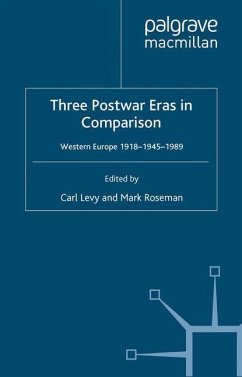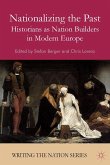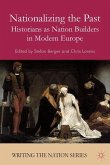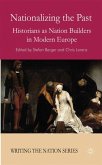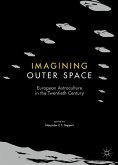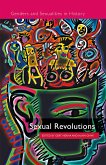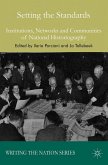Three Postwar Eras in Comparison
Western Europe 1918¿1945¿1989
Herausgegeben:Levy, C.; Roseman, M.
Three Postwar Eras in Comparison
Western Europe 1918¿1945¿1989
Herausgegeben:Levy, C.; Roseman, M.
- Broschiertes Buch
- Merkliste
- Auf die Merkliste
- Bewerten Bewerten
- Teilen
- Produkt teilen
- Produkterinnerung
- Produkterinnerung
A brief glance at twentieth century European history would suggest that wars and their aftermath produced the major turning points in its development. Three times - in 1918, 1945 and again in 1989 - Europe was confronted with major questions of restructuring and rebuilding. But can we really divide Europe's development into neat postwar eras? Why was the period 1945-1989 so much more stable and prosperous than 1918-1939? Has the end of the cold war changed the basis of the post-1945 settlement? This comparative collection offers some unique insights into these questions.
Andere Kunden interessierten sich auch für
![Three Postwar Eras in Comparison Three Postwar Eras in Comparison]() Carl LevyThree Postwar Eras in Comparison110,99 €
Carl LevyThree Postwar Eras in Comparison110,99 €![Nationalizing the Past Nationalizing the Past]() Nationalizing the Past82,99 €
Nationalizing the Past82,99 €![Nationalizing the Past Nationalizing the Past]() Nationalizing the Past82,99 €
Nationalizing the Past82,99 €![Nationalizing the Past Nationalizing the Past]() Nationalizing the Past88,99 €
Nationalizing the Past88,99 €![Imagining Outer Space Imagining Outer Space]() Imagining Outer Space30,99 €
Imagining Outer Space30,99 €![Sexual Revolutions Sexual Revolutions]() Sexual Revolutions82,99 €
Sexual Revolutions82,99 €![Setting the Standards Setting the Standards]() Setting the Standards38,99 €
Setting the Standards38,99 €-
-
-
A brief glance at twentieth century European history would suggest that wars and their aftermath produced the major turning points in its development. Three times - in 1918, 1945 and again in 1989 - Europe was confronted with major questions of restructuring and rebuilding. But can we really divide Europe's development into neat postwar eras? Why was the period 1945-1989 so much more stable and prosperous than 1918-1939? Has the end of the cold war changed the basis of the post-1945 settlement? This comparative collection offers some unique insights into these questions.
Produktdetails
- Produktdetails
- Verlag: Palgrave Macmillan / Palgrave Macmillan UK / Springer Palgrave Macmillan
- Artikelnr. des Verlages: 978-1-349-40489-6
- 1st ed. 2002
- Seitenzahl: 320
- Erscheinungstermin: 14. Dezember 2001
- Englisch
- Abmessung: 216mm x 140mm x 18mm
- Gewicht: 404g
- ISBN-13: 9781349404896
- ISBN-10: 1349404896
- Artikelnr.: 45576571
- Herstellerkennzeichnung Die Herstellerinformationen sind derzeit nicht verfügbar.
- Verlag: Palgrave Macmillan / Palgrave Macmillan UK / Springer Palgrave Macmillan
- Artikelnr. des Verlages: 978-1-349-40489-6
- 1st ed. 2002
- Seitenzahl: 320
- Erscheinungstermin: 14. Dezember 2001
- Englisch
- Abmessung: 216mm x 140mm x 18mm
- Gewicht: 404g
- ISBN-13: 9781349404896
- ISBN-10: 1349404896
- Artikelnr.: 45576571
- Herstellerkennzeichnung Die Herstellerinformationen sind derzeit nicht verfügbar.
DAVID ELLWOOD Associate Professor in Contemporary International History, University of Bologna NIALL FERGUSON Professor of Political and Financial History, Jesus College, Oxford PAUL FURLONG Professor of European Studies and Head of the School of European Studies, Cardiff University STEPHEN GUNDLE Senior Lecturer and Head of the Department of Italian, Royal Holloway College, University of London DOUGLAS JOHNSON Emeritus Professor of French History, University College London ROBERT LUMLEY Reader in Italian Cultural History, University College London CHARLES MAIER Director of the Minda de Gunzburg Center for European Studies and Krupp Foundation Professor of European Studies, University of Harvard PAOLO POMBENI Professor and Chair of the Department of History, Public Law and Political Science, University of Bologna CAROLA SACHSE Research Director, Max Planck Institute, Berlin CHRISTOPHER SETON-WATSON Emeritus Fellow, Oriel College, Oxford CHRIS WARNE Lecturer in French, School of European Studies, University of Sussex
Acknowledgements Notes on the Contributors List of Tables List of Figures 1918-1945-1989: The Making and Unmaking of Stable Societies in Western Europe: Introduction; C.Levy PART I: THE INTERNATIONAL CONTEXT FOR NATIONAL STABLIZATION: 1918-1945-1989 Empires of Nations? 1918-1945-1989; C.Maier America as a European Power: Four Dimensions of the Transatlantic Relationship: 1945 to the Late 1990s; D.Ellwood The Nationalist Challenge to Stability in Eastern and Central Europe: 1918-1945-1989; C.Seton-Watson PART II: THE DOMESTIC PROCESSES OF STABILIZATION A: The Economics of Stabilization; 1918-1945-1989 Public Debt as a Postwar Problem: The German Experience after 1918 in Comparative Perspective; N.Ferguson Stabilizing Italy: 1945-1989; P.Furlong B: Creating the Consumer Society: 1920s-1950s Visions of Prosperity: Consumerism and Popular Culture in Italy from the 1920s to the 1950s; S.Gundle Rationalizing Family Life-Stabilizing German Society: The 'Golden Twenties' and the 'Economic Miracle' in Comparison; C.Sachse C: Between Post-Materialism and the End of the Cold War 1968-1989: Social Movements in Italy Reconsidered; R.Lumley The Youth Question: Generations, Stability and Social Change in France since 1945; C.Warne PART III: POLITICAL FRAMEWORKS ACROSS THE THREE POST-WAR ERAS France's German Question, 1918-1945-1989; D.Johnson Defeat and Stability: 1918, 1945 and 1989 in Germany; M.Roseman The Roots of the Italian Political Crisis: A View from History, 1918- 1945, 1989 ...and After; P.Pombeni Index
Acknowledgements Notes on the Contributors List of Tables List of Figures 1918-1945-1989: The Making and Unmaking of Stable Societies in Western Europe: Introduction; C.Levy PART I: THE INTERNATIONAL CONTEXT FOR NATIONAL STABLIZATION: 1918-1945-1989 Empires of Nations? 1918-1945-1989; C.Maier America as a European Power: Four Dimensions of the Transatlantic Relationship: 1945 to the Late 1990s; D.Ellwood The Nationalist Challenge to Stability in Eastern and Central Europe: 1918-1945-1989; C.Seton-Watson PART II: THE DOMESTIC PROCESSES OF STABILIZATION A: The Economics of Stabilization; 1918-1945-1989 Public Debt as a Postwar Problem: The German Experience after 1918 in Comparative Perspective; N.Ferguson Stabilizing Italy: 1945-1989; P.Furlong B: Creating the Consumer Society: 1920s-1950s Visions of Prosperity: Consumerism and Popular Culture in Italy from the 1920s to the 1950s; S.Gundle Rationalizing Family Life-Stabilizing German Society: The 'Golden Twenties' and the 'Economic Miracle' in Comparison; C.Sachse C: Between Post-Materialism and the End of the Cold War 1968-1989: Social Movements in Italy Reconsidered; R.Lumley The Youth Question: Generations, Stability and Social Change in France since 1945; C.Warne PART III: POLITICAL FRAMEWORKS ACROSS THE THREE POST-WAR ERAS France's German Question, 1918-1945-1989; D.Johnson Defeat and Stability: 1918, 1945 and 1989 in Germany; M.Roseman The Roots of the Italian Political Crisis: A View from History, 1918- 1945, 1989 ...and After; P.Pombeni Index

